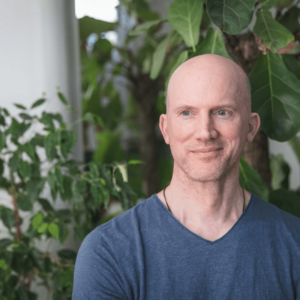Complex trauma often arises from prolonged exposure to distressing experiences, particularly in childhood. It can affect emotional regulation, relationships, and physical health. For those seeking recovery, effective treatment must address both the psychological and physiological dimensions of trauma.
At Khiron Clinics, our approach integrates evidence-based psychological therapies and body-focused techniques grounded in Polyvagal theory. This guide explores the best therapies for complex trauma healing, offering insight into how these methods support real, lasting change.
What Is Complex Trauma and How Does It Affect Mental Health?
Complex trauma refers to repeated exposure to traumatic events, often interpersonal in nature, and often beginning in early life. These experiences may include neglect, abuse, or loss, creating a sense of chronic fear, disconnection, or shame. Over time, unresolved trauma can lead to symptoms associated with complex PTSD, including emotional numbness, flashbacks, anxiety, and difficulty forming safe relationships.
The psychological effects are often compounded by the body’s stress response. Individuals may remain in a heightened state of alertness, struggle with sleep or appetite, or feel unsafe in their own bodies. These symptoms are not signs of weakness—they are common responses to traumatic stress.
At Khiron Clinics, we recognise that every trauma story is different. Our trauma-informed team carefully assesses the unique needs and mental health challenges each client brings, ensuring tailored support that addresses the deep-rooted effects of complex trauma.
Polyvagal Theory and Its Role in Trauma Treatment
Polyvagal theory, developed by Dr Stephen Porges, provides a foundation for understanding how trauma impacts the nervous system. It highlights how certain physiological states—like shutdown or hyperarousal—are protective responses to overwhelming events.
Rather than viewing symptoms as disorders, this approach reframes them as the body’s adaptations to unsafe environments. At Khiron Clinics, we use Polyvagal-informed care to guide trauma treatment by identifying signs of nervous system dysregulation and supporting clients to reconnect with cues of safety.
Through bottom-up methods such as breathwork, grounding, and somatic therapies, clients learn to regulate physiological responses. These are combined with top-down therapies, which address thoughts, memories, and emotional responses. The integration of these approaches helps reduce symptoms and build a stable foundation for recovery.
The Power of Psychotherapy and EMDR in Trauma Recovery
Psychotherapy provides a structured, supportive space to process traumatic experiences. At Khiron Clinics, we use a range of trauma-focused approaches, including Trauma Informed Stabilisation Technique (TIST), EMDR (Eye Movement Desensitisation and Reprocessing), Somatic Experiencing (SE) and Internal Family Systems (IFS).
EMDR is especially effective for processing distressing memories. Through bilateral stimulation, clients revisit traumatic events in a controlled way, allowing the emotional intensity of the memory to reduce. This can lead to a reduction in flashbacks, nightmares, and emotional reactivity.
Psychotherapy also helps individuals challenge unhelpful beliefs, build resilience, and regain a sense of agency. Sessions are paced based on each individual’s readiness and responses. Trauma recovery is not linear, but with consistent support, the emotional load of the past can be safely addressed.
Creative Therapies and Expressive Arts in Trauma Healing
Not all healing happens through words. For many adults affected by complex trauma, verbal expression can feel difficult or unsafe. Creative therapies, including expressive arts, offer a valuable alternative. These methods allow clients to process trauma through movement, music, art, or storytelling—often helping to access feelings held beyond conscious awareness.
At Khiron Clinics, we incorporate expressive arts therapy into our programmes, helping clients externalise emotions, process memories, and reconnect with parts of themselves that trauma may have silenced. These practices often work in tandem with verbal therapy and other body-based approaches, such as:
- Biofeedback-based techniques: to help track physiological stress signals.
- Mind–Body–Breath Practice: to support nervous system regulation through mindful breathing and interoceptive awareness.
- Tai Chi: to promote grounding, balance, and a sense of safety through gentle, flowing movement.
This blend of therapies supports mental health by addressing both body and mind, creating more space for calm, creativity, and emotional balance.
Building the Right Environment for Trauma Recovery
Therapy is most effective when it takes place in an environment where safety and trust are prioritised. Healing from complex trauma requires more than clinical techniques—it requires relational consistency, understanding, and respect for each individual’s pace.
At Khiron Clinics, we provide a therapeutic environment that supports every aspect of recovery. This includes:
Clear boundaries and compassionate guidance
Trauma-informed care from all staff
A sense of shared experience through peer support
In addition to professional therapy, recovery is supported by building safe relationships—whether with family, peers, or within a therapeutic community. These connections can help individuals feel seen, heard, and grounded as they move through the challenges of trauma healing.
Choosing the Best Therapy for Complex Trauma
There is no single approach that works for everyone. The best therapies for complex trauma healing are those that respond to your specific needs, symptoms, and preferences. For some, this may involve a combination of EMDR and somatic therapies. Others may find expressive arts more effective during certain stages of healing. Resources and awareness that carry long into the recovery journey can offer support in moments of future challenge.
Khiron Clinics offers guidance to help you navigate these questions. We tailor each treatment plan to your unique history, symptoms, and strengths—offering integrated care that respects your story and supports your goals.
Starting Your Healing Journey
Healing from complex trauma is a long-term process, but support is available. Whether you’re seeking relief from longstanding emotional pain or looking to better understand your reactions and relationships, the right therapy can make a real difference.
If you’re ready to begin, we invite you to connect with our experienced clinicians at Khiron Clinics. Our trauma-informed, Polyvagal-guided therapies are designed to support deep healing—physically, emotionally, and relationally.






